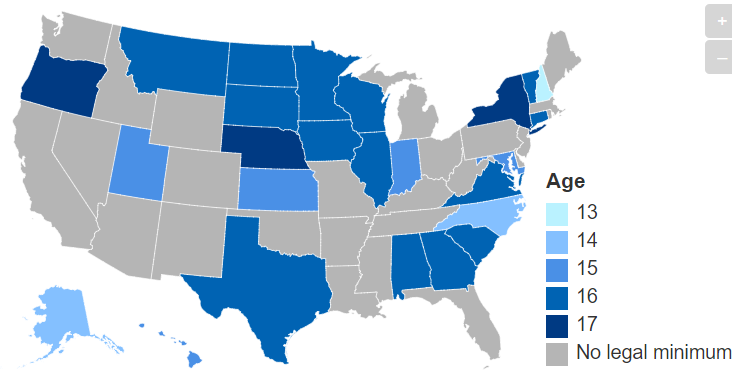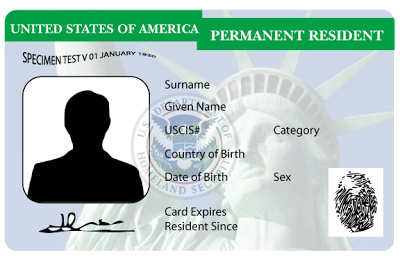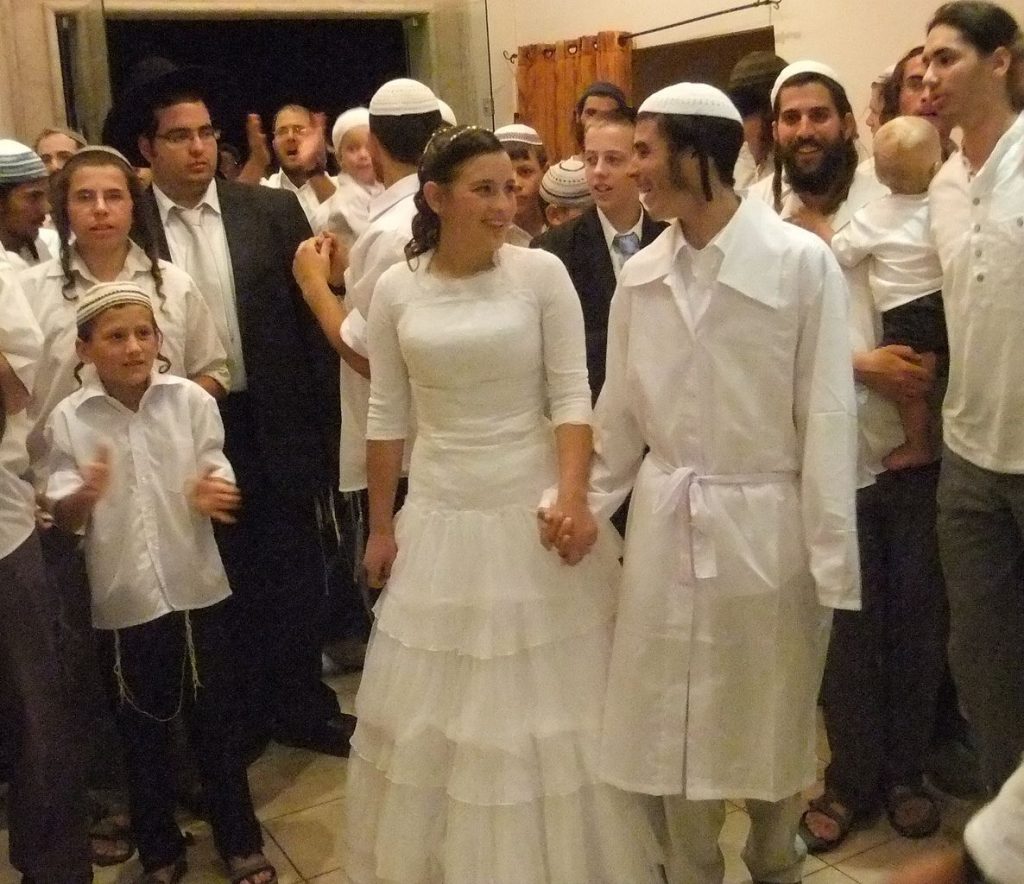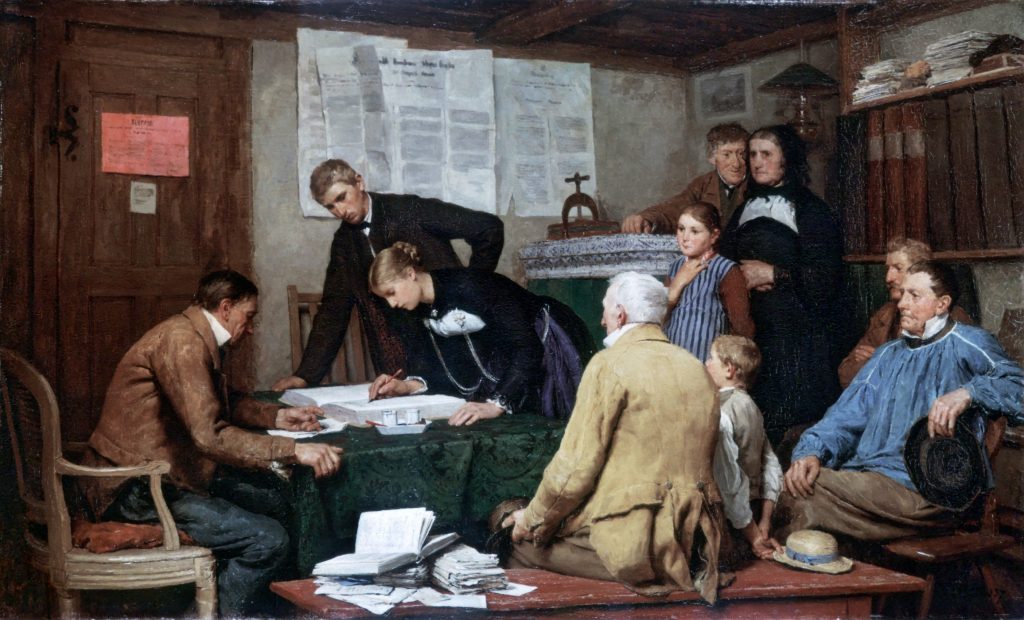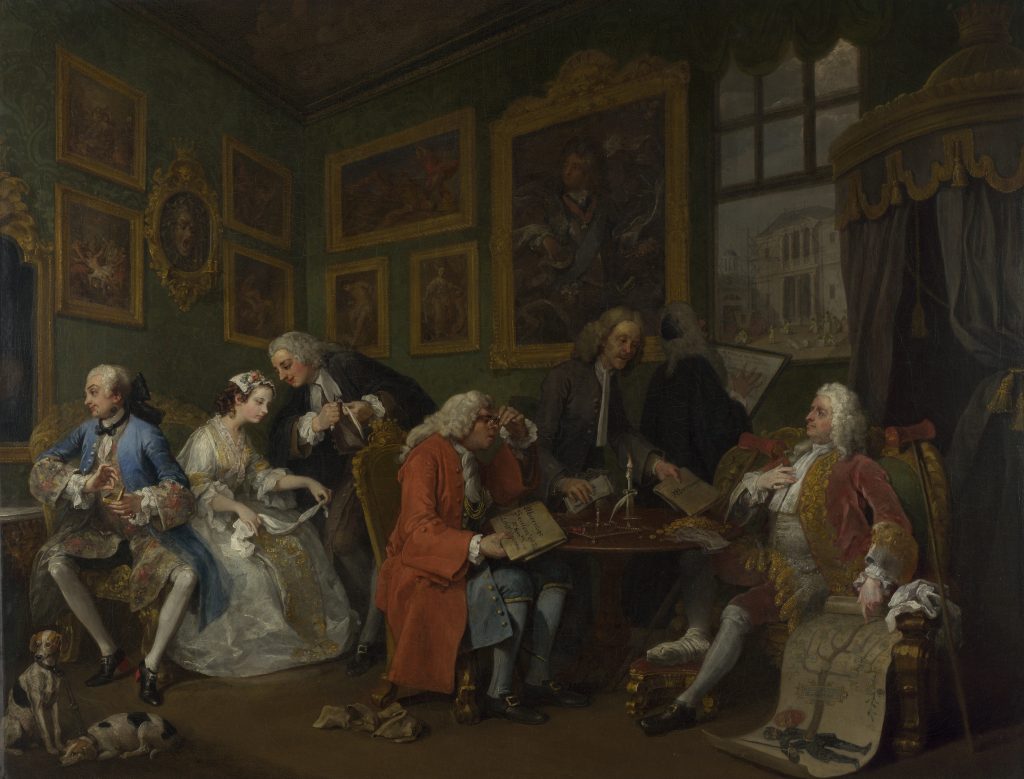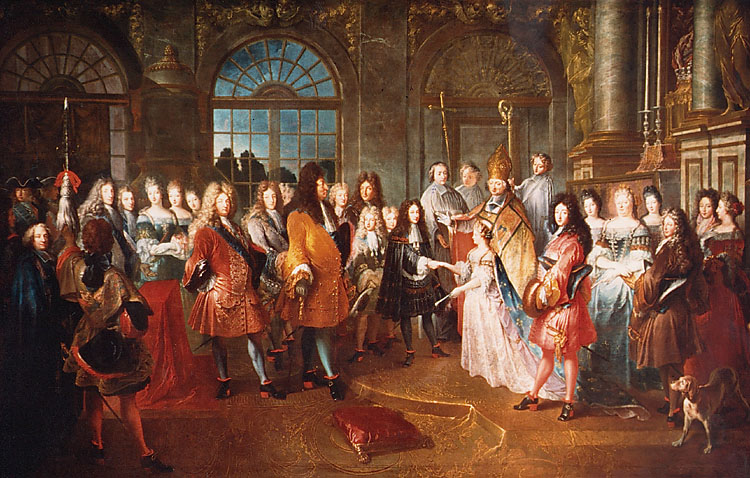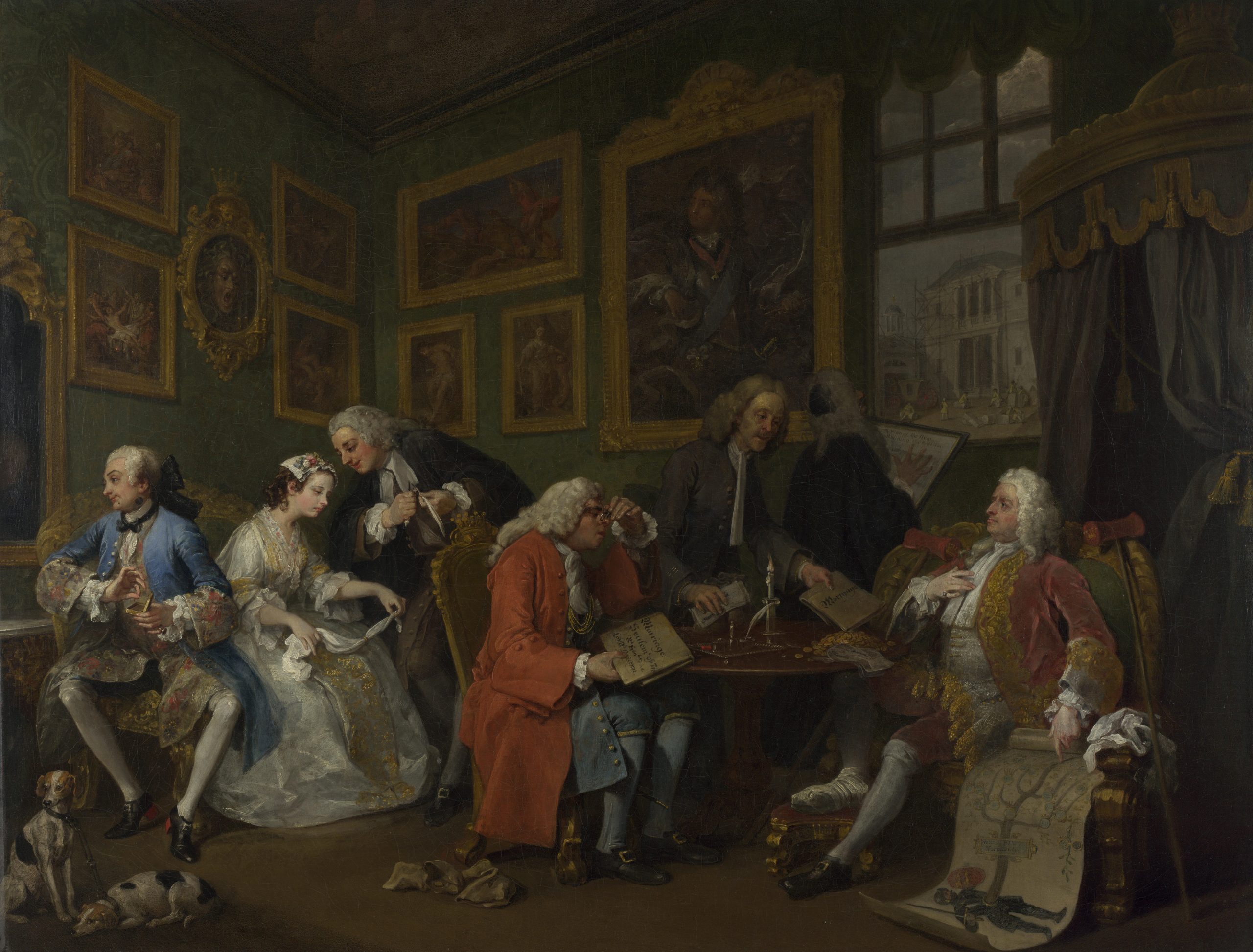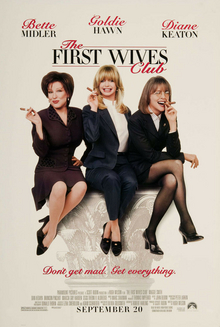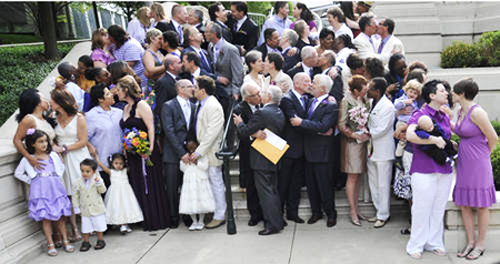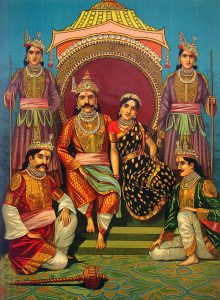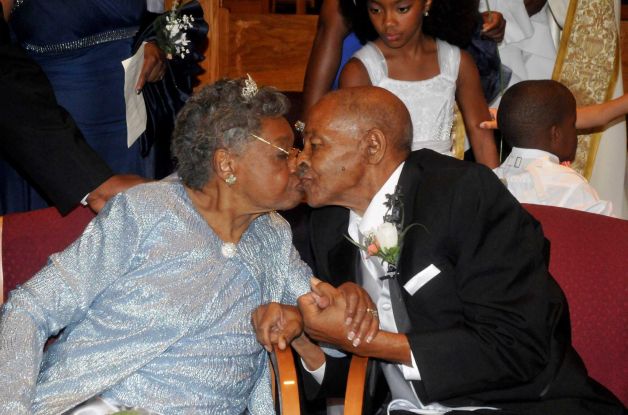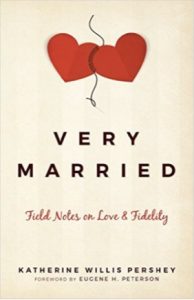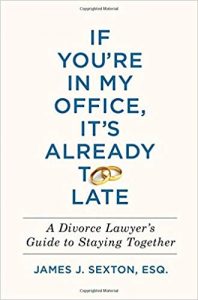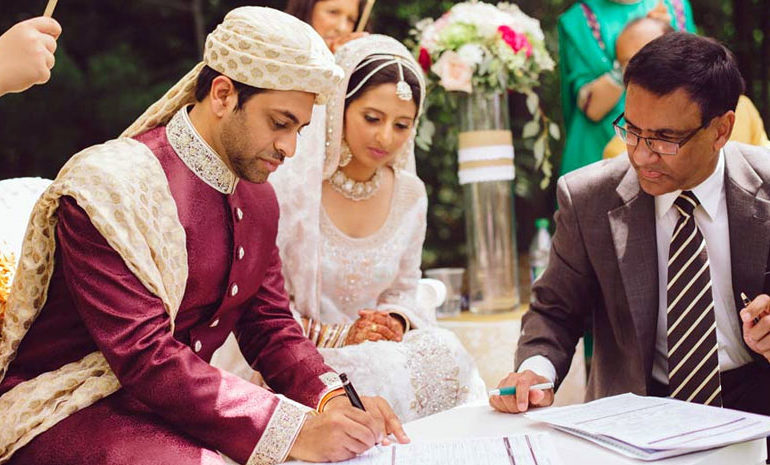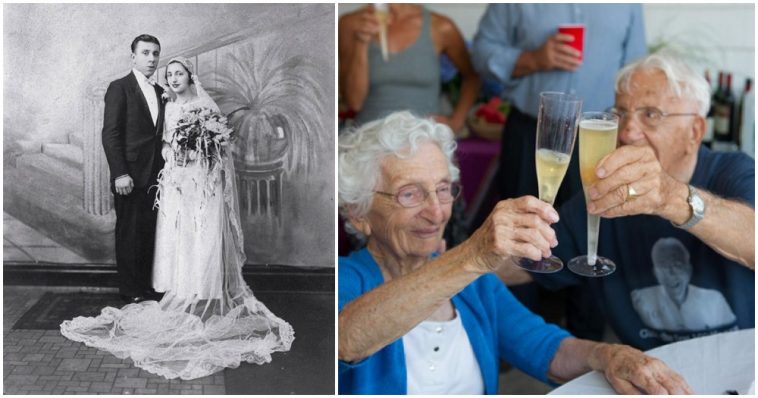
Arranged marriages were common throughout the world until the 18th century. An arranged marriage is when the bride and groom are selected by individuals other than the couple themselves, usually by family members. In some cultures, families rely on a professional matchmaker to find a spouse for a young person.
Usually, arranged marriages happen to provide social, political, economic, or religious advantage to one or both parties. Note: typically both partners agree/consent to the arrangement.
The practice of arranged marriages has declined substantially during the 19th and 20th centuries.
Gwen Broude and Sarah Greene have studied 142 cultures worldwide. They report that, despite the recent decline, 130 cultures have elements of arranged marriage. This means that more than half of marriages worldwide are arranged.
Arranged marriages remain common in many regions, notably South Asia, the Middle East, North Africa, Sub-Saharan Africa, and the Caucasus. Deeply-rooted traditional beliefs in arranged marriages in South Korea mean that the custom prevails in many rural communities. In India, 88.4% of the marriages are the fruit of an arrangement. Statistics on arranged marriages show that they are most present in the world’s most numerous nations. Arranged marriages number more than 26 million unions worldwide.
Benefits of Arranged Marriages
If you search online for pros of arranged marriages, you will find a list something like this.
- It eliminates the stress of trying to find a life partner.
- It keeps parents involved in the relationship.
- It creates harmony within both families.
- It keeps people rooted in their family, culture, and ethics.
- It reduces worry about the future welfare of any children.
- Arranged marriages ensure that the culture and traditions of both parties align closely, so religious issues do not arise.
- The two families will have a good relationship: the connections between the families and the couple last long without misunderstandings.
Chances are, my readers disapprove of people having no say in who and when they marry. Well, you might be surprised to learn that leaving marriage arrangements to the elders, entirely or partially, is something that young people in certain countries actually prefer.

But Are the Results Good or Bad?
Statistics reveal that arranged marriages last longer with a substantially lower divorce rate compared to the western idealization of the love marriage. In the US, around 40-50% of non-arranged marriages end in divorce. The divorce rate in arranged marriages depends mostly on the type of arrangement, but the worldwide divorce rate for all types of arranged marriages is estimated at 6.4%. (Separation rates in India are twice as high as the divorce rate, so it is also likely that people in arranged marriages are less willing to see divorce as an option.)
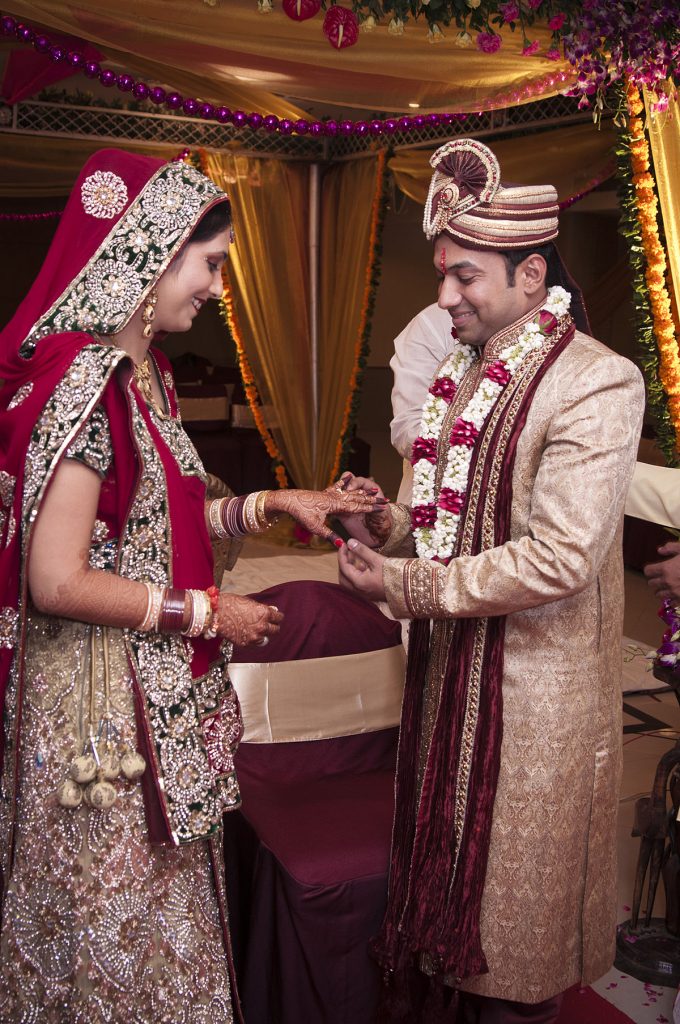
The love experienced by Indian couples in arranged marriages appears to be even more robust than the love people experience in “love marriages.” In a 1982 study psychologists Usha Gupta and Pushpa Singh used the Rubin Love Scale, which gauges intensity of romantic love. They found that people in arranged marriages reported an increase in romantic love for their spouse as time passes. In contrast, people in love marriages more commonly report a decrease in romantic love over time.
Studies have shown that couples in an arranged marriage are more likely to be very romantic towards their partner; mostly because they both are slowly adjusting to the new life and passing every hurdle together.
The newest UN report for women’s progress show that women who participate in partially arranged marriages and self-arranged marriages enjoy greater authority within the marriage than those whose marriages were entirely arranged by their families. They are more involved in making other important decisions as well, such as the optimal time to have children or financial management.
Women in partially arranged or self-arranged marriages are also less likely to experience marital violence, spousal rape, and financial abuse. Additionally, women who participated in the selection of their spouse are much less likely to become victims of honor killings later.
Overall, given the low arranged-marriage divorce rate, one might think this is the best way to go about marriages. However, studies that explore the satisfaction rate of both autonomous and arranged marriages show mixed results. In India, approximately twice as many women in arranged marriages report being separated from their husbands as report seeking a legal divorce. The success of arranged marriages seems to depend on how marriage is perceived, the relative importance of practicality and passion preferred.
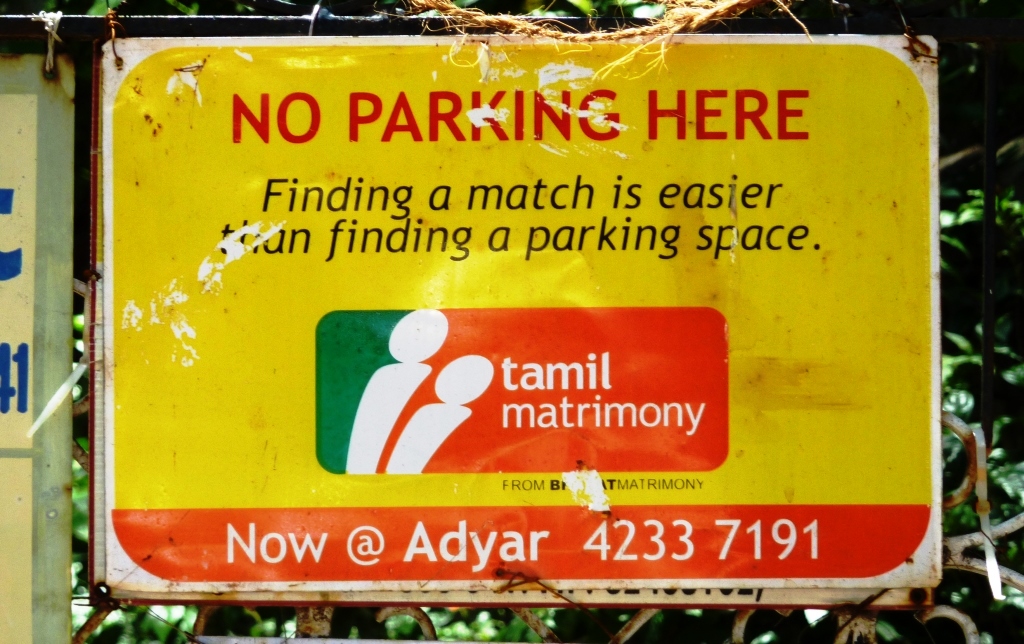
Forced Marriage
When one or both of the people involved do not consent to the union, that is a forced marriage. For example, when family members threaten or use force to coerce the union.
Note: a forced marriage is NOT the same as an arranged marriage.
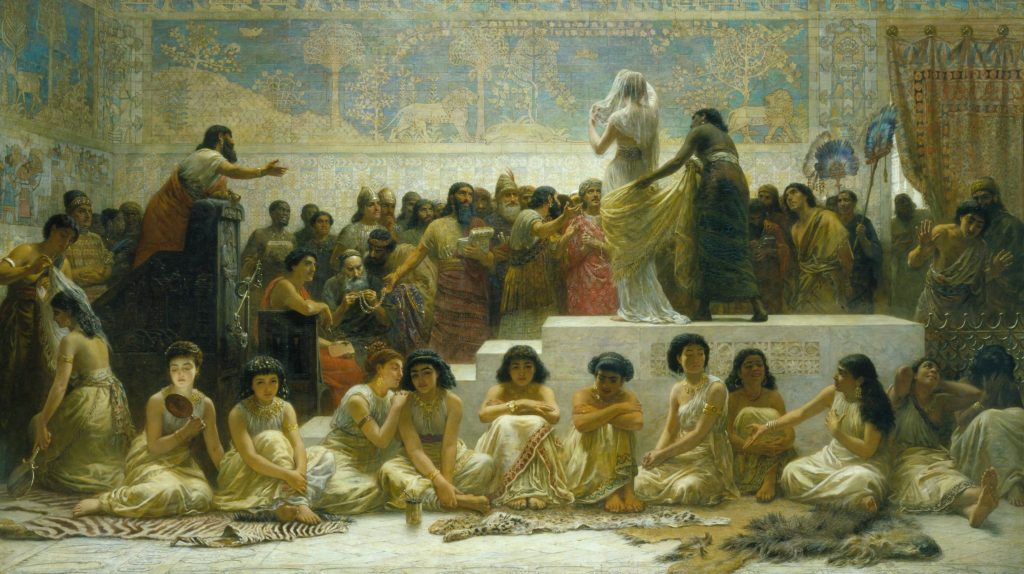
Edwin Long
Many factors could compel people into a forced marriage. A council may require a young woman or man to marry as part of a repayment for debts or to settle a dispute. Parents might sell their child as a bride or groom in exchange for a dowry or bride price. Relatives might kidnap a prospective bride or groom and force them to marry or face a future as a social pariah (or even an honor killing). In times of conflict, fighters often coerce women into war-time “marriages.” Human traffickers commonly lure women and girls to areas with skewed male-to-female ratios with promises of work or education, then coercing them into forced marriages. Threats of social ostracism, emotional blackmail, and lack of financial independence can also force unwilling people to marry.
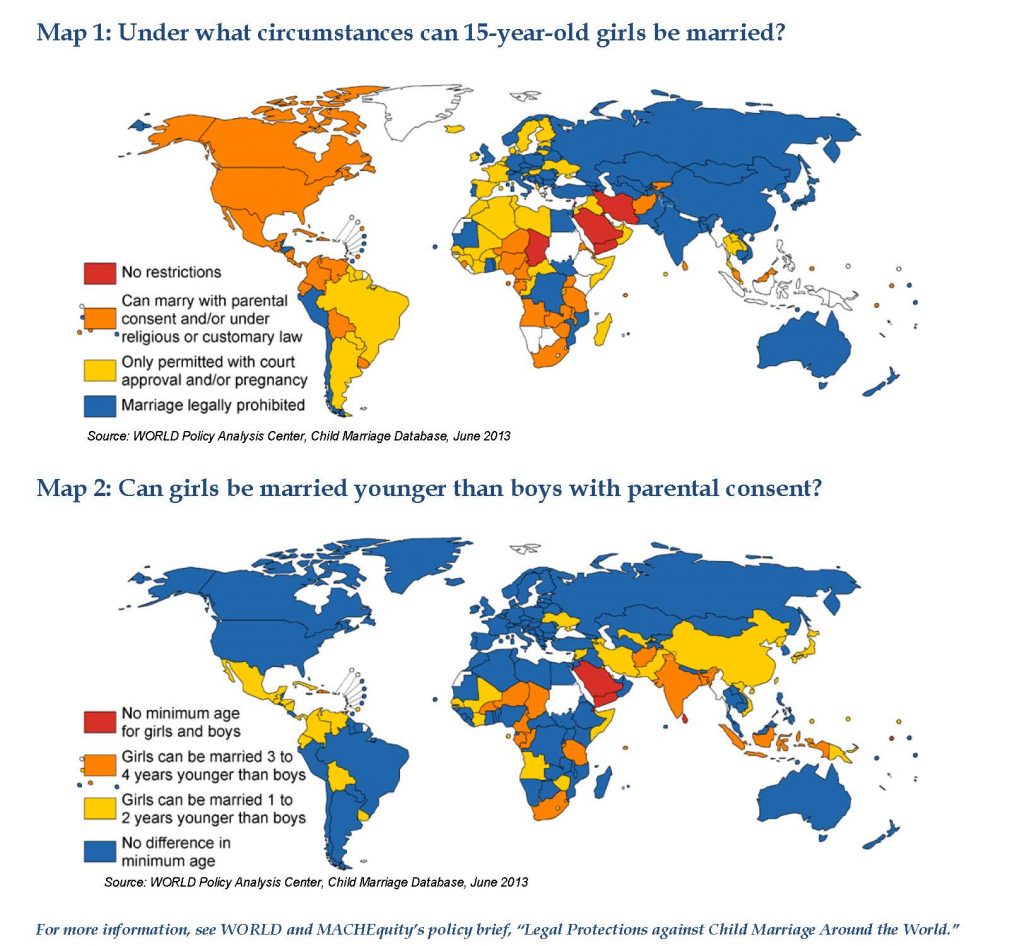
Children who marry before they reach adulthood are considered to be in forced marriages.
Worldwide, statistics about arranged marriages demonstrate that over 11 million girls younger than 18 enter forced marriages every year. South Asia has the highest percentage of forced marriages for girls under 18. Africa is second in forced marriages, and together with South Asia, it represents a third of the total number worldwide. In Bangladesh, between 27 and 29% of girls married before they turned 15.
However, there is some good news on that front. Worldwide, the incidences of underage marriage have declined drastically over the past decades. In 2018, UNICEF reported that the proportion of brides who married before age 18 has decreased by 15% since 2008.
Between 2000 and 2018, some 300,000 minors were legally married in the United States. The vast majority of child marriages (reliable sources vary between 78% and 95%) were between a minor girl and an adult man. In many cases, minors in the U.S. may be married when they are under the age of sexual consent, which varies from 16 to 18 depending on the state. It is most common in West Virginia and Texas, where about seven of every 1,000 15- to 17-year-olds were married in 2014. (Both states are currently reviewing laws to end child marriage.) In many states, minors cannot legally divorce because they have to be 18 to file for divorce or hire a lawyer. Domestic violence shelters typically do not accept minors.
As of March 2023, seven states have banned underage marriages, with no exception: New Jersey (2018), Delaware (2018), Pennsylvania (2020), Minnesota (2020), Rhode Island (2021), New York (2021), and Massachusetts (2022).
Arranged Marriages in the U.S.
Until the first half of the 20th century, arranged marriages were common in immigrant families in the United States. Arranged marriage is legal and still occurs in the U.S. today.
“Green Card Marriages” are the most common form of arranged marriage in the US. Census Bureau statistics show that over 450,000 Americans each year marry foreign-born individuals and petition for their permanent residency permission (green card). Of all green cards issued in 2007, 25% were awarded to American spouses, making it the most utilized path for immigration in the U.S.
The majority of immigrants entering into green card marriages sincerely desire to marry and intend to make the marriage last. However, the USCIS revealed that between 5% and 30% of all such marriages were sham marriages, never intended to last beyond the minimum required to make the green card permanent.
Most Jewish marriages in the U.S. are not arranged. However, in Haredi communities, marriages may be arranged by the parents of the prospective bride and groom. The parents often engage a professional match-maker (shadchan) who finds and introduces the prospective bride and groom and receives a fee for their services. The wedding is known as a shidduch, from the Aramaic word meaning “to settle down.”
Members of some sects of Christianity, such as the Apostolic Christian Church, practice partially arranged marriages. The prospective bridegroom will come to an agreement with the father of a woman he wishes to marry. She then has the option to decline the proposal.
Contrary to some misinformation, among the Amish there are no arranged marriages by the parents or other mediators. Young people who choose to be baptized into a certain Amish affiliation (typically the one they grew up in) are expected to marry inside this group. However, a person looking to marry will choose their own potential spouse from within the group.
Note: “A forced marriage is grounds for divorce and for both civic and church annulment in the US. The U.S. government is opposed to forced marriage and considers it to be a serious human rights abuse. If the victim of forced marriage is a child, forced marriage is also a form of child abuse.” (US Customs and Immigration Services)
Bottom Line: Although not common in the U.S., arranged marriages worldwide are often successful and desirable, depending on the couple’s expectations and views of what makes a good marriage.




